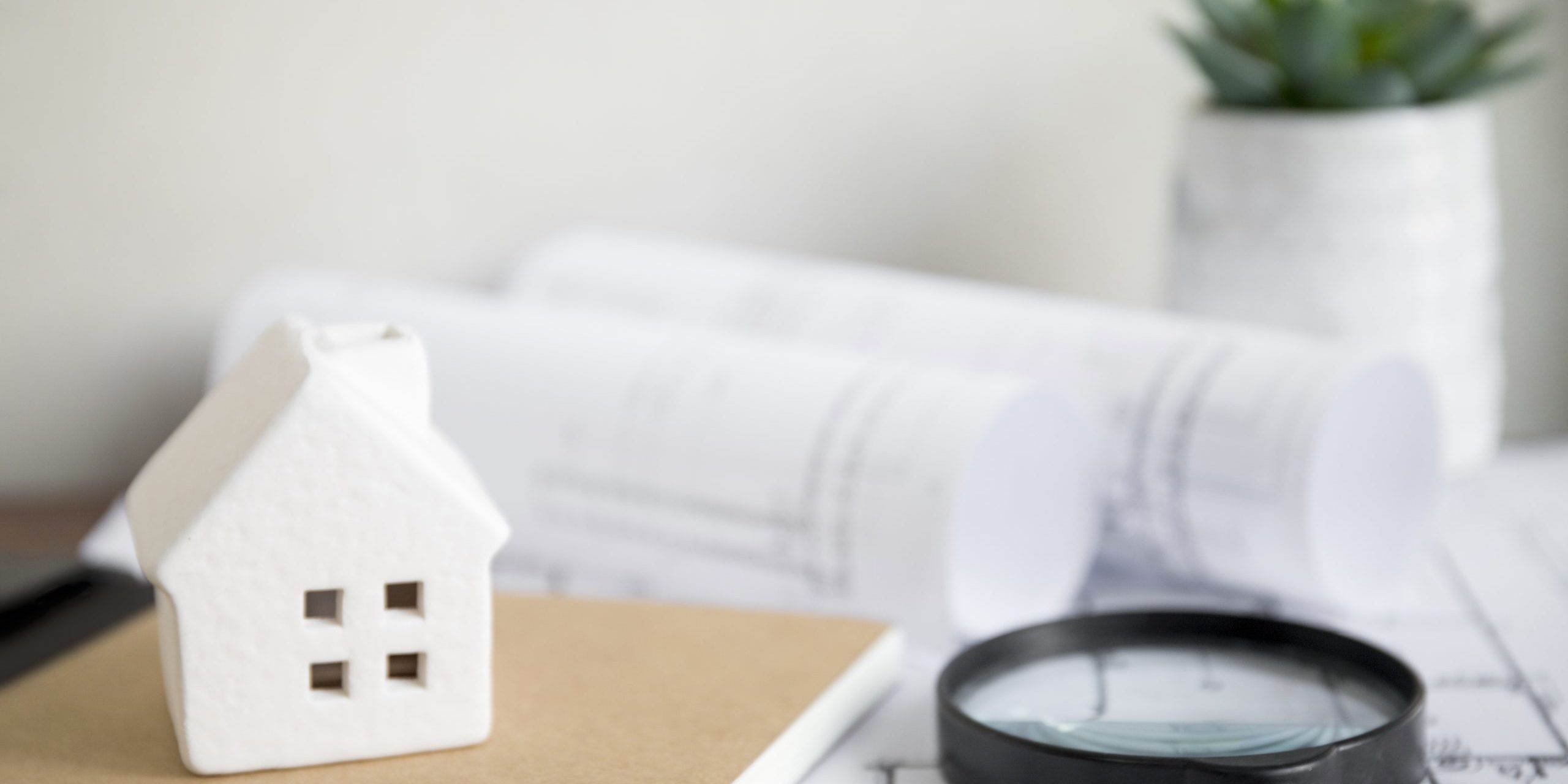Buying a house can be a complex and time-consuming process, which usually follows a set of stages that prospective homeowners should be aware of. Understanding these distinct phases could provide you with a clearer roadmap and can help alleviate stress. It typically begins with determining how much you can afford and securing a mortgage agreement in principle.
Once you’ve established your budget, searching for your ideal property becomes the next critical step. Factors such as location, size, and other specific requirements become key as you delve into the market. Upon finding a suitable home, you’ll proceed to making an offer. If your offer is accepted, the process moves towards the legal aspects involving conveyancing, surveys, and additional paperwork before culminating in the exchange of contracts and ultimately completion, when the property officially becomes yours. Each step has its own expected duration, but the process as a whole can vary significantly based on a multitude of factors including your own circumstances and those of the seller.
A typical timeline for purchasing a house can vary from a few weeks to several months. It’s important to be prepared for potential delays such as conveyancing issues or a slow property chain. Being well-informed about each step will help you navigate the process more smoothly and approach each phase with a measure of confidence and clarity.
Understanding the Basics of House Buying

Before you embark on the journey of purchasing a home, grasping the following key elements is critical: types of property ownership, effective budgeting, the influence of credit scores, and mortgage essentials.
Types of Property Ownership
In the UK, there are primarily two types of property ownership: freehold and leasehold. A freehold property means you own the property and the land it stands on outright, indefinitely. On the other hand, a leasehold property means you hold the right to occupy the land or property for a set term as specified in a lease.
Importance of Budgeting
Creating a comprehensive budget is paramount in the house buying process. Consider the costs of surveys, solicitor fees, removal costs, and stamp duty, in addition to the deposit and monthly mortgage payments. This ensures you stay within your financial means and avoid overstretching yourself.
The Role of Credit Scores
Your credit score significantly affects your ability to secure a mortgage. Lenders use this score to gauge your reliability in repaying debt. A higher credit score increases your chances of mortgage approval and could lead to more favourable interest rates.
Mortgage Basics
Understanding mortgages is fundamental. A mortgage is essentially a loan secured against the property you are buying. It’s repayable over a set period of time, often 25 to 30 years, with variations available in the form of fixed-rate, variable-rate or tracker mortgages. The deposit is the initial payment you make towards the property’s cost, typically ranging from 5% to 20% of the purchase price.
Starting the House Buying Process
Before diving into property search, it’s crucial to outline your priorities and investigate different areas and property types, as well as decide whether buying is the preferable option over renting for your specific situation.
Assessing Your Needs and Preferences
To begin, take stock of what you’re looking for in a home. Are you after a detached house with a garden, or would a flatserve your needs better? Consider the number of bedrooms, the need for a home office, or proximity to schools if you have children. Aspects such as off-street parking or a garage might also influence your decision.
Researching Locations
Once you’ve pinpointed what you want in a home, research potential locations. Dig into local amenities, crime rates, public transport links, and potential for future development. Property prices will fluctuate significantly across different postcodes, so investigate to find a balance between affordability and quality of life.
Buying vs Renting Considerations
Finally, weigh the pros and cons of buying versus renting a property. Homeownership comes with responsibilities such as maintenance and repair, but it’s also an investment that could appreciate over time. Renting, on the other hand, offers more flexibility to move but without the potential long-term financial benefits of owning property. Consider your financial stability, future plans, and lifestyle preferences when making this decision.
Securing Financial Pre-Approval

Before embarking on your property search, it’s crucial to know the financial prerequisites. Securing financial pre-approval can define your budget and demonstrate your seriousness to sellers.
Choosing a Lender
When selecting a lender for your mortgage pre-approval, consider their interest rates, customer service, and the variety of loan options they offer. Research and compare different lenders to find one that aligns with your financial circumstances and home-buying goals.
Understanding Pre-Approval
Pre-approval involves a lender evaluating your financial situation to determine how much they would be willing to lend you. It is not a guarantee of a loan but a statement of potential loan size based on your current financial data. Pre-approval typically lasts for 90 days, during which you’ll know exactly how much you can offer on a house.
Documents Required for Pre-Approval
To proceed with pre-approval, you will need to provide:
- Proof of income: Recent pay slips, tax returns, and employment confirmation.
- Proof of assets: Savings, investment statements, and other asset documents.
- Credit history: A strong credit score will support your application.
- Identification: Passport or driver’s licence to verify your identity.
- Liabilities: Outstanding debts, credit cards, and other financial commitments.
Prepare these documents beforehand to streamline your pre-approval process.
Searching for Properties
When embarking on your house-buying journey, finding the right property ranks at the top in terms of importance. This section is tailored to guide you through different methods of property search to simplify the process.
Hiring an Estate Agent
An estate agent serves as a pivotal resource for accessing on-market properties. By hiring an estate agent, you gain insider knowledge and tailored choices that align with your specific criteria. They are adept at comprehending your needs and can be instrumental in identifying the most suitable homes.
Online House Hunting
Online house hunting has become the cornerstone of property searching. Utilise credible property listing websites to sift through a multitude of options. You can set filters according to location, price, and property type to streamline your search, making it an efficient initial step in the process.
Attending Open Houses
Open houses offer you a tangible feel of the property layout and condition. They are invaluable opportunities for a realistic impression of various homes, allowing you to explore different neighbourhoods and understand the market better.
Evaluating Property Features
When considering potential homes, evaluating property features is key. Assess features such as the number of bedrooms, garden size, and parking facilities critically. It is also wise to consider the property’s energy efficiency and any need for repairs or renovations.
Remember, your patience and diligence during this phase can significantly determine the outcome of your house-buying experience.
Making an Offer
When you find your ideal property, making an offer is the next critical step towards acquiring your new home. It’s important to approach this step with a clear strategy and understanding of the process, ensuring you’re prepared for the possible back-and-forth negotiations that can occur.
Determining Offer Amount
Research: To determine your offer amount, consider the current property market trends, which are indicative of whether you might be entering into a buyer’s or seller’s market. Keep in mind the asking price of the property and how it compares with similar homes in the area.
Budget: Evaluate your budget carefully, considering not only the purchase price but also associated costs such as stamp duty, surveys, and solicitor fees. Your initial offer should align with your budget while leaving room for possible negotiations.
Offer Submission Process
Communicate With the Estate Agent: Typically, you submit your offer through the estate agent, either verbally or in writing. If you initially put forward your offer verbally, follow up with a written confirmation to ensure clear communication.
Formalise Your Position: Demonstrating your position as a serious buyer can be advantageous. This could include having a mortgage in principle, which confirms that a lender is tentatively prepared to offer you a loan. Evidence of your deposit and a lack of an ongoing property chain can also strengthen your position.
Negotiations and Counteroffers
Be Prepared to Negotiate: After you’ve made an offer on a property, the seller may accept, reject, or make a counteroffer. Stay prepared for negotiations, and decide in advance how far above your initial offer you’re willing to go.
Consider Timelines and Conditions: Your ability to move quickly or offer flexible terms can be persuasive. If faced with a counteroffer, consider all aspects of it, including any conditions attached and how they align with your needs and circumstances.
Due Diligence and Inspections

When you’re buying a house, due diligence and inspections are critical steps to ensure that your investment is sound and secure. These checks will highlight any issues that may need addressing before you proceed with the purchase.
Home Inspection
A home inspection is a thorough examination of the property’s condition. It covers everything from the roof to the foundation and identifies any problems that might be expensive to fix post-purchase. It’s crucial that you arrange for a professional home inspection to avoid any future surprises.
Property Valuation
Next is the property valuation, which determines the property’s market worth. Your lender will require a valuation to ensure the property is worth the loan amount. An accurate valuation influences your mortgage offer and can affect your decision to proceed with the buying process.
Addressing Repairs and Defects
After the inspections, you may discover certain repairs or defects within the property. It’s essential to negotiate with the seller about who is responsible for addressing these issues. Any agreements should be made before exchange of contracts to secure a fair deal and peace of mind. The final search by your solicitor will ensure no last-minute legal impediments arise, solidifying your confidence in the purchase.
Finalising the Purchase
Finalising the purchase of a home is a crucial step involving several key actions from securing financial backing to tying up legal loose ends. Be prepared for a clear sequence of events leading towards the successful acquisition of your property.
Securing a Mortgage
Before proceeding with the property purchase, you need to finalise your mortgage arrangement. This involves receiving a formal mortgage offer from your lender, which details the loan amount, interest rate, and repayment terms. It’s essential to review and accept this offer to ensure funding is in place for the purchase.
Exchanging Contracts
Exchanging contracts marks the point at which the agreement to buy and sell the property becomes legally binding. At this stage, you will agree on a completion date and pay a deposit, typically around 10% of the property’s value. Following this exchange, you are legally committed to buying, and the seller to selling, the property.
Closing the Sale
Closing the sale, also known as completion, is when the property officially changes hands. You’ll transfer the remaining funds to the seller’s solicitor, and in return, you’ll receive the keys to your new home. Ensure that you have arranged for utilities and insurance to start from this day to protect your new investment.
Post-Purchase Considerations
After the sale has closed, there are several post-purchase tasks to address:
- Property Taxes: Be certain to register with the local council to take care of your Council Tax obligations.
- Name Change on Utilities: Update all utility accounts to your name.
- Insurance: Secure buildings and contents insurance effective from the completion date.
- Document Safekeeping: Keep all your property documents, such as the title deeds and mortgage details, in a safe place.
Remember, each of these steps is an integral part of home ownership and failing to complete them promptly could result in unnecessary complications.
Frequently Asked Questions
When buying a house, understanding the process and typical timeline can help you manage expectations and plan effectively.
What are the typical stages involved in the house purchasing process?
The house purchasing process typically involves viewing properties, making an offer, having it accepted, conducting property surveys and searches, exchanging contracts, and finally, completing the purchase. More details about each step can be found in this guide to buying a house.
How long is the process from having an offer accepted to completion?
On average, the process from having an offer accepted to completion is approximately six weeks to eight months, but this can vary due to multiple factors involved in the transaction.
What is the average duration to complete a house purchase with no onward chain?
A house purchase with no onward chain can be quicker, typically taking around six to twelve weeks to complete, as there are fewer transactions that could cause delays.
Can you outline the main searches required during the property buying procedure?
The main searches during the property buying procedure include local authority searches, environmental searches, water and drainage searches, and title searches. These are essential to uncover any issues that might affect the property’s value or your use of it.
What factors can affect the timeline of buying a house?
Factors that can impact the timeline include the length of the chain, survey findings, mortgage approval, conveyancing issues, and whether the property is leasehold or freehold. Each of these elements can potentially introduce delays.
How much time should one expect to allocate for the house buying process without a mortgage?
If you’re not obtaining a mortgage, you might expect the house buying process to take less time, potentially around four to six weeks, as there are fewer financial approvals and paperwork involved. However, the actual time can still vary depending on the other factors at play.



